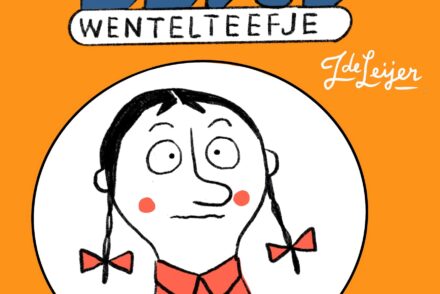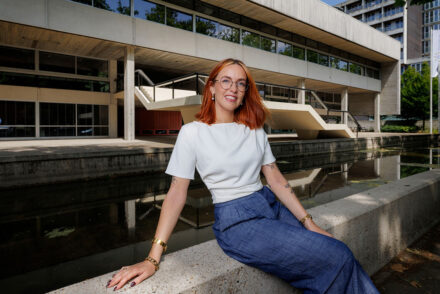Chair advisory committee on collaborations Nicola Jägers: ‘We feel the urgency’
The protests for Palestine that have gripped the campus in recent weeks have led to at least one important achievement: an Advisory Committee on Collaborations has been established. What will that Committee do? And was it not set up primarily to buy time? Committee chair Nicola Jägers answers.

Such an advisory committee has now been established at many Dutch universities. The goal: to create a ‘framework’ within which sensitive collaborations with other parties can be assessed. These committees only issue advice. Should they conclude, for example, that collaboration with Israeli universities must be terminated, then it is up to the Executive Board to actually take the decision.
In Tilburg, the Advisory Committee had been in the pipeline for some time, but was accelerated due, in part, to protests (in Dutch) against collaboration with Israeli universities. Via the Schools, Rector van de Donk and associates looked for suitable candidates for the committee.
In addition to Professors Wim Dubbink, Esther Keymolen, and Juliette Schaafsma, Nicola Jägers, professor of Human Rights at Tilburg Law School, was prepared to become chair.
What exactly is the task on your shoulders?
‘We aim to draw up consideration frameworks for the sensitive collaborations Tilburg University has to deal with. The Committee aims not only to assess collaborations with Israeli universities: we also want to be able to give advice in the long run on collaborations with the fossil industry or other sensitive institutions, for example.
‘But because of the events in Israel and Gaza, the Advisory Committee was set up faster, and we also feel the urgency to issue an opinion on this matter.’
When will that advice be forthcoming?
‘The framework has to be finalized first, and I can’t yet say how long that will take, although I dare say it won’t be months. We have met three times in the last thirteen days, so we are working hard to weigh, as carefully as possible, what will be in that framework and what will not. But that takes time. We did decide on Friday to set up a working group.’
What is this working group going to do?
‘That working group is going to look at partnerships with universities in Israel as a priority. One of us is going to join that working group, and we are still looking for members for that working group, they can be people with expertise from inside or outside the university. We would especially like to talk to the experts, I think there’s already a lot of fact-finding about this case.’
Isn’t it important that protesting students be included in that working group as well?
‘An academic setting should always be open. We are trying to get the framework down on paper with a small group first, but we are certainly open to hearing from people. We immediately opened an e-mail address where anyone can submit his or her input.
‘I invite everyone to submit views, especially in writing. Once the working group is up and running, they will certainly engage with students as well. We are not going to reinvent the wheel either and would like to talk to people who are very knowledgeable.’
The protesting students will all interpret this Committee and working group as a delaying tactic by the Executive Board.
‘Yes, I’ve heard that too and I’m not surprised. I do understand the concerns. As far as we are concerned, it is not a delaying tactic, I would never participate in that myself. We want to be able to weigh the partnerships properly, that requires care.
‘A lot of things need to be considered: a collaboration consisting of student exchanges is of a very different order compared to collaboration on a research project.’
Does the Committee work independently of the Executive Board?
‘Yes, the Executive Board also values our independence. They asked us to formulate our own assignment. We have done that and the Executive Board has taken note of that and adopted the assignment.’
Recently, the rectors of Dutch universities published a letter indicating that they will not cut ties with Israeli universities. Does this circumvent the Committee?
‘I don’t see it that way. Our mandate states that no course of action is excluded. Freeze, break, or continue: these are all options that our Committee can consider advising. We will advise what we feel is right, what the Executive Board then does with that is up to them.’
The protesters have disbanded their camp. Does that give the Advisory Committee some room to breathe?
‘No, I don’t see it that way. That those students are protesting is their right, and I don’t think that right is in question. Nor do I want to give the impression that we don’t care that people are sleeping in tents on campus. We feel the urgency anyway, whether the students continue with their protest or not. In any case, it shows that the University is not disconnected from society.
So it may be weeks before the consideration framework is in place.
‘We are making progress every day, which increasingly clarifies the framework. But many questions arise: will you evaluate at the level of a country, of an institution, of a faculty or of a specific partnership? We need to discuss that. Although it is evident that we will not advise obstacles in individual collaborations between staff or students.’
Translated by Language Center, Riet Bettonviel






